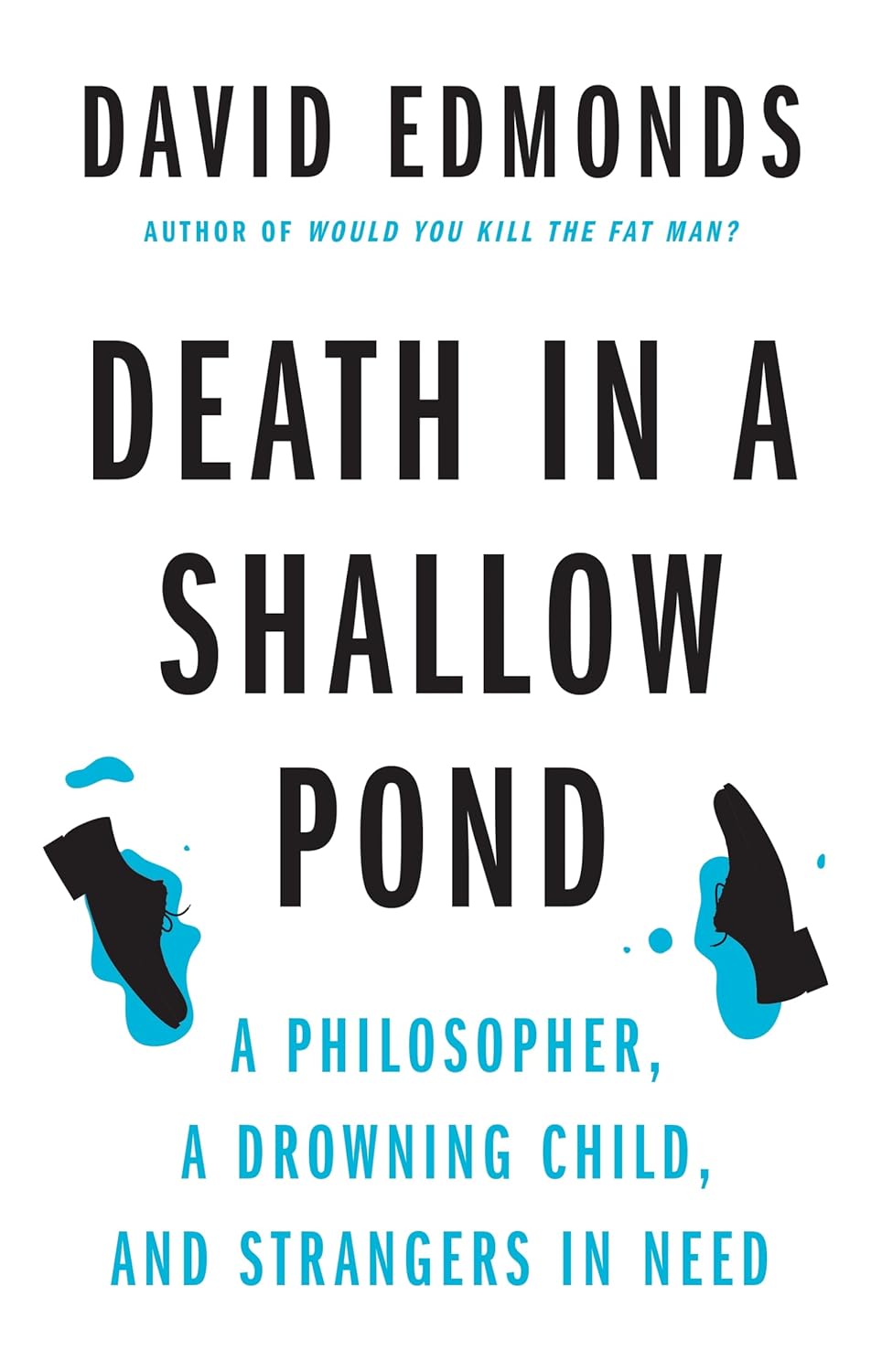
Death in a Shallow Pond: A Philosopher, a Drowning Child, and Strangers in Need
淺水塘裡的抉擇:救人,還是保鞋?
內容介紹
暢銷書《維根斯坦的決鬥》(Wittgenstein’s Poker)共同作者大衛.愛德蒙茲(David Edmonds)帶來一段引人入勝的哲學探索——彼得.辛格(Peter Singer)備受爭議的「溺水孩童」思想實驗如何徹底改變人們對慈善捐助的看法。
想像這樣的情境:你走過一個淺水塘,發現一名幼童在水中掙扎,顯然有溺水的危險。你環顧四周找她的父母,但四下無人。你是唯一能夠救她的人,必須立刻行動。但當你準備涉水時,你突然想到自己正穿著一雙昂貴的鞋子,涉水將毀了它們——而且你可能會遲到。那麼,你會讓這名孩子溺死嗎?
哲學家彼得.辛格(Peter Singer)於1972年發表了這個思想實驗,主張若我們明明可以輕易透過捐款救助開發中國家的生命,卻選擇袖手旁觀,其道德錯誤程度與為了保住鞋子而不救孩子並無二致。這樣的論點真的成立嗎?
在《淺水塘裡的抉擇:救人,還是保鞋?》一書中,大衛.愛德蒙茲(David Edmonds)講述了辛格及其這一爭議性思想實驗的非凡故事,追溯這個觀念如何深刻改變許多人看待貧窮與道德責任的方式——同時也引發激烈批評。
本書探討了影響辛格形成這套激進主張的生平經歷與全球事件,並說明這一思想如何啟發一群年輕哲學家創立「有效利他主義」運動,致力於優化慈善捐助的效益。但書中也納入批評者的觀點,他們認為「淺水塘」與有效利他主義過於理想化、判斷失準,甚至可能適得其反,忽視了導致貧窮的根本結構,反而延續了這些問題。
然而,愛德蒙茲最終主張,即便爭議不斷,「淺水塘」仍然具有重塑我們道德實踐的力量——在這個充滿不必要苦難的世界裡,這一點至關重要。
目錄
導論:死亡與淺池塘
第一部分:施予的哲學
第一章 維也納、墨爾本
第二章 牛津:哲學甦醒
第三章 越南、東巴基斯坦
第四章 Bob的布加迪
第五章 從池塘到世界
第六章 墳墓中的轉捩點
第七章 成長的痛苦
第八章 長遠主義
第二部分:慈善與其不滿
第九章 心靈實驗室
第十章 深水中的淺池塘
第十一章 道德數學、遊樂幫浦與小額貸款
第十二章 賈比太太與土撥鼠日
第十三章 新白人負擔
第十四章 超級富豪與天堂之門
第十五章 矯正過去的錯誤
第十六章 距離與尊嚴
第十七章 你造成的傷害
第十八章 搖罐子
第十九章 感受的藝術
後記:辛格的天鵝之歌
相關影片
作者介紹

大衛.愛德蒙茲(David Edmonds)為多本廣受好評、深具影響力的哲學暢銷書作者,包括與約翰.艾迪諾(John Eidinow)合著的《維根斯坦的決鬥》。其他著作包括《帕菲特》(Parfit)、《教授之死》(The Murder of Professor Schlick)與《你會推胖子下橋嗎?》(Would You Kill the Fat Man?,皆由普林斯頓大學出版社出版)。他是牛津大學上廣博倫理研究所(Uehiro Oxford Institute)的資深研究員,亦曾任英國廣播公司(BBC)電台記者。與奈傑爾.沃伯頓(Nigel Warburton)共同主持哲學播客 Philosophy Bites,下載次數近五千萬次。
書評
“David Edmonds’s Death in a Shallow Pond is one of the best histories of philosophy I have read. It tells the story of Peter Singer and Effective Altruism, which has been the most influential movement in philosophy over the last several decades. Both informative and engaging.”—Tyler Cowen, New York Times bestselling author of Stubborn Attachments: A Vision for a Society of Free, Prosperous, and Responsible Individuals
“Effective Altruism has elicited an unusual combination of dogmatic intellectual support within academia, enthusiastic endorsement from scores of ultrawealthy individuals and organizations, and vitriolic condemnation from across the board. David Edmonds offers a lively, thoughtful, and balanced history of Effective Altruism, and a timely and welcome assessment of its strengths and weaknesses as a philosophical idea.”—Cécile Fabre, author of Spying Through a Glass Darkly: The Ethics of Espionage and Counter-Intelligence
“This is the fascinating story of how a simple philosophical thought experiment catalyzed five decades of argument and activism about the ethics of philanthropy. The cast of characters is as rich and colorful as the panoply of heroes and villains in a good Victorian novel. David Edmonds is by far the best writer in the genre that weaves together philosophical ideas that affect people’s lives, biography, anecdote, and cultural and political history. There could scarcely be a more enjoyable introduction to the philosophy of charitable giving than this illuminating book.”—Jeff McMahan, University of Oxford
“Death in a Shallow Pond is a brilliant philosophical exploration and a delight to read. David Edmonds’s gripping narrative sheds light on Peter Singer’s seminal thought experiment, the Effective Altruism movement it inspired, and the many objections that have been raised against both.”—Richard Yetter Chappell, author of Parfit’s Ethics
“Death in a Shallow Pond is a compelling introduction to, and history of, this famous thought experiment. With clear and pithy writing, Edmonds provides fresh insights about the key figures in this debate and its animation of the larger Effective Altruism movement.”—Brad Hooker, author of Ideal Code, Real World
